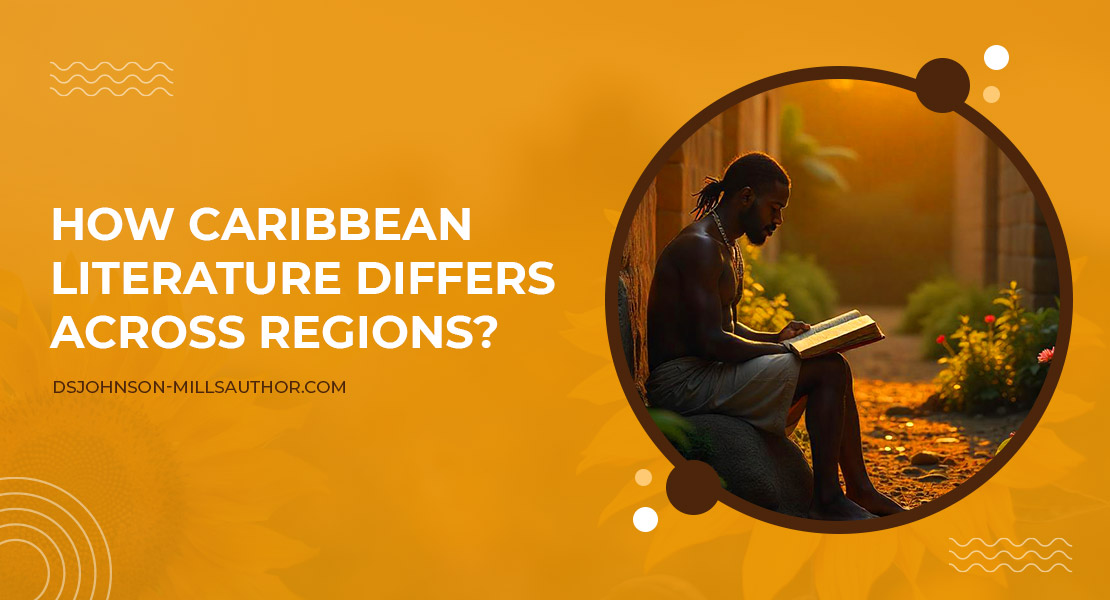Caribbean literature is as vibrant and diverse as the region itself. Encompassing a rich array of languages, cultures, and histories, this literary tradition varies significantly across the different islands and nations.
Each region offers a distinct voice, shaped by its unique cultural influences, historical experiences, and linguistic landscapes. These differences give Caribbean literature its complexity and make it a treasure trove for readers and scholars alike.
Below, we explore how Caribbean literature unfolds differently across regions, highlighting its unique richness and cultural depth. Through this lens, we’ll see how Caribbean literature expands our worldview and why it is such an essential part of global literary traditions.
Caribbean Literature Across Different Regions: An Overview
The English-Speaking Caribbean
The English-speaking Caribbean – including islands like Jamaica, Trinidad and Tobago, and Barbados – is a hub of internationally recognised writers. Many works from this region reflect on colonialism, independence, and the complex legacy of slavery. There’s often a strong focus on race and identity, with writers exploring the impact of British colonial rule on personal and national identity.
For instance, renowned authors like Derek Walcott and Jamaica Kincaid have brought regional voices to the global stage. Their works often intertwine personal narratives with broader national stories, capturing the complex emotions tied to history and heritage.
Walcott’s writings, with their rhythmic language and vivid imagery, are a testament to the region’s fusion of oral and literary traditions.
This region also celebrates new and emerging voices like D S Johnson-Mills – a popular Caribbean author, who continues to capture the human experience with a touch of Caribbean authenticity.
These writers often tackle modern issues like migration, globalisation, and the diasporic struggle to maintain cultural identity.
A standout feature in English-speaking Caribbean literature is the incorporation of Creole and Patois in prose and poetry. Writers skilfully blend local dialects with standard English to create a linguistic texture that reflects the rhythm of Caribbean life.
This unique linguistic mix has had a significant impact on Caribbean literature and its influence, as it challenges conventional literary norms and invites readers into the lived experiences of Caribbean folk.
The French-Speaking Caribbean
The literature of French-speaking Caribbean regions, such as Haiti, Martinique, and Guadeloupe, has its own distinct flavour.
The influence of French colonial history is deeply embedded in these works, with a heavy focus on themes like revolution, resistance, and identity.
The Haitian Revolution, in particular, looms large, serving as a backdrop for many narratives.
Creolisation is a major theme in French-speaking Caribbean literature. Writers like ÉdouardGlissant and Maryse Condé focus on cultural hybridity, exploring how language, identity, and history blend to create something uniquely Caribbean.
These works often reflect a philosophical depth, tackling abstract ideas like alienation and belonging while grounding themselves in the socio-political realities of the region.
Another key element in this region’s literary output is its connection to the surreal and spiritual.
Haitian literature, for example, is known for incorporating elements of Vodou, weaving the spiritual and the mystical into everyday experiences. This blend of the transcendental and the tangible is a hallmark of the region’s literary identity.
The Spanish-Speaking Caribbean
The literature of the Spanish-speaking Caribbean, particularly from Cuba, the Dominican Republic, and Puerto Rico, is heavily influenced by the region’s turbulent political history.
Much like the French-speaking Caribbean, themes of revolution, power, and cultural identity dominate the region’s narratives.
Cuban writers like NicolásGuillén and AlejoCarpentier have left a lasting legacy. The latter’s concept of “lo real maravilloso,” or the “marvellous real,” brought a distinctive magical realism to the region and influenced writers across the globe.
While writers like Guillén weave Afro-Caribbean rhythms and perspectives into their poetry, linking historical struggles with modern ones.
Against this backdrop, the Spanish-speaking Caribbean places a pronounced focus on mestizaje – the blending of races and cultures that define the region. This results in works celebrating the fusion of Spanish, African, and Indigenous heritage while critiquing the colonial systems that shaped these interactions.
The Dutch-Speaking Caribbean
While literature from the Dutch-speaking Caribbean isn’t as globally recognised, it plays a vital role in reflecting the region’s history and culture.
Suriname and the Dutch Antilles, in particular, offer a wealth of stories that chronicle the legacies of Dutch colonial power and the plantation economy.
Works from this region frequently explore themes of displacement and cultural survival. Migration is also a recurring motif, with many stories tracing the lives of families and individuals balancing their Caribbean roots with their lives in European nations like the Netherlands.
Writers like Frank Martinus Arion have highlighted how language plays a role in cultural preservation and identity. The use of Papiamentu, a Creole language spoken widely in Curaçao and Bonaire, adds a layer of intimacy and authenticity to the region’s stories.
Final Thoughts
The regional differences in Caribbean literature are not boundaries; they are bridges. Each voice adds a unique layer to the rich tapestry of Caribbean storytelling, creating a collective narrative that connects the past, present, and future.
From capturing the legacy of colonialism to celebrating cultural hybridity, each region offers something extraordinary.
Many famous black authors along with other luminous voices from the region, continue to ensure that Caribbean literature isn’t just preserved but also evolves, remaining vital and relevant in today’s world.
For readers, these stories are more than just tales; they are invitations to explore the soul of the Caribbean.





